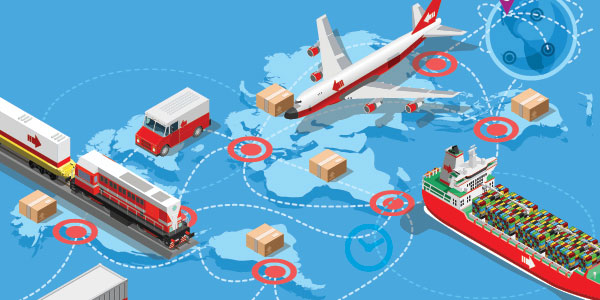Get acquainted with the free trade and special economic zones and their advantages for setting up a business and investment for foreigners
Free trade and special economic zones were established several years ago with the aim of encouraging more investment, especially foreign investment, in Iran. The special benefits offered to investors in these areas are significant.
Trade-industrial free zones in Iran
According to statistics provided by the Trade Promotion Organization of Iran (TPO), there are currently seven free trade zones and twelve special economic zones in Iran. A free zone is a port or non-port area in which some rules of the state are not enforced and/or some benefits and facilities are provided for investors.
In fact, these regions help the process of development of the country by providing chances for taking advantage of the benefits such as tax exemptions, customs duty relief and exempt income, lack of cumbersome formalities for foreign exchange transactions and administrative processes, speeding up the import and export processes by attracting foreign investment and transferring technology.
There are seven active free zones in Iran including Kish, Qeshm, Chabahar, Anzali, Aras, Arvand and Mako.
Special economic zones in Iran
Special economic zones refer to geographical areas in which the customs laws of the country are not enforced. These areas are established to facilitate the import and export of goods and support the domestic industry, as well as accelerate the absorption of new technologies at customs bases and border points of the country.
Iran special economic zones are: Payam Airport (Tehran), Salafchegan (Qom), Persian Gulf (Hormozgan), Lorestan, Persian Gulf Shipbuilding (Hormozgan), Amirabad Port (Mazandaran), Bushehr Port, Bushehr, Shahid Rajaei Port (Hormozgan), Sarakhs (Khorasan Razavi), Sirjan (Kerman) and Yazd.
The legal benefits of investment in free trade-industrial zones
In order to quicken the achievement of the goals set for establishing the free and special economic zones, various benefits and exemptions have been provided in various laws and regulations for activities in these areas, the most important of which are tax benefits, exemption of import duties, facilities related to real estate ownership (except land), and the complete freedom of capital outflows and inflows. These items are explained in this section in detail.
Tax benefits in free trade-industrial zones
Article 13 of the Law on the Administration of Free Trade-Industrial Zones of the Islamic Republic of Iran states the tax benefits of economic activities in free zones as follows:
Natural and legal persons engaged in various economic activities in the free zones shall be exempt from paying income and property tax subject to the direct tax law for twenty years from the date of operation specified in the license for any type of economic activity in the free zone. After the expiration of twenty years, they will be subject to tax regulations which are approved by the Parliament on the proposal of the Cabinet.
Some examples of direct taxes subject to exemption in free trade zones
All different forms of income tax are subject to exemption, some of which are:
- Property income tax
- Agricultural income tax
- Income tax (for employees)
- Income tax on freelance jobs
- Corporate income tax (normally equal to 25% of the net profit of the companies)
In the case of VAT, only those activities are exempt that are either entirely done within the free zones or the export activities (to outside of Iran) are done in these zones.
Click on the link below to read more:
Free trade and special economic zones and their advantages in iran

Comments
Post a Comment